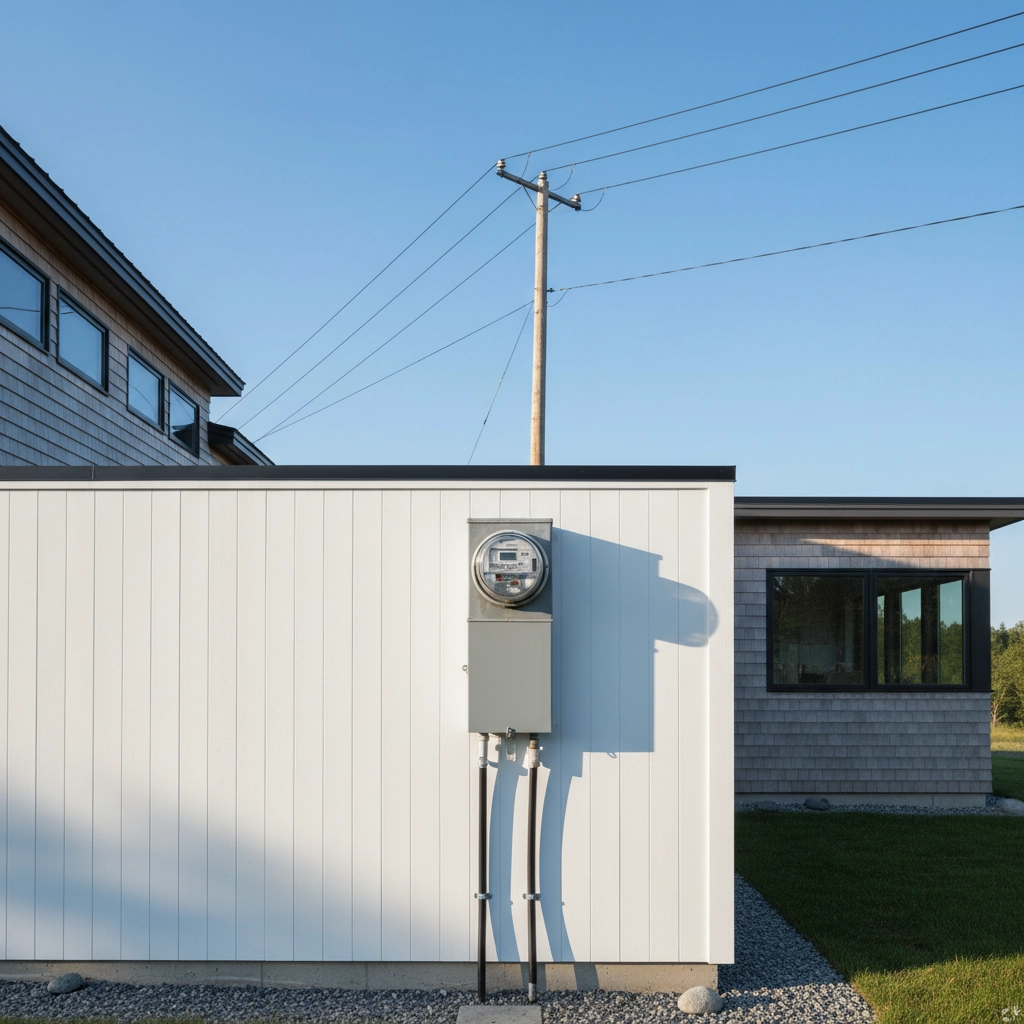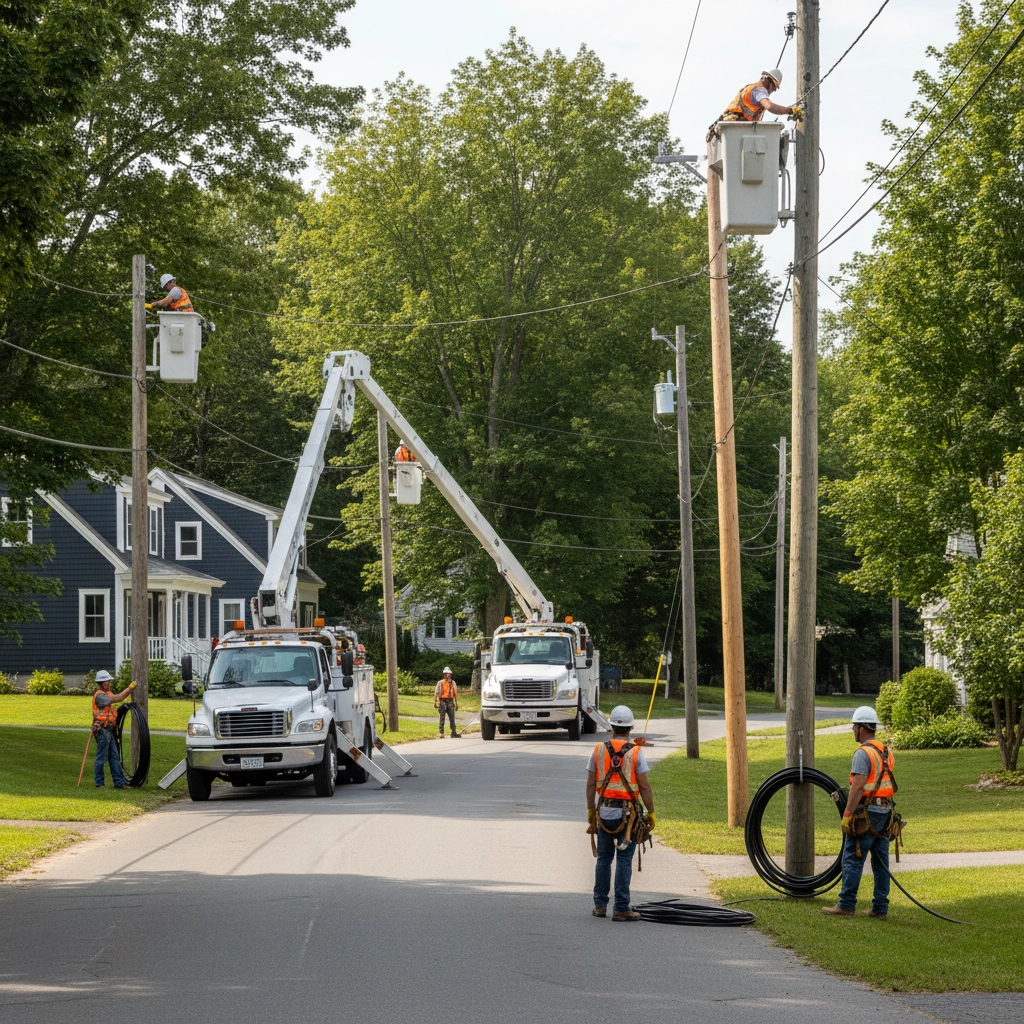Why Are Electrical Companies in Maine Raising Prices? CMP's $1.4 Billion Grid Upgrade Explained
- Daniel Morrissette
- Oct 16, 2025
- 4 min read
If you've been wondering why your electricity bills keep climbing, you're not alone. Maine homeowners are facing some significant rate increases, and Central Maine Power (CMP) has just proposed their biggest investment plan yet – a whopping $1.4 billion grid upgrade that could add up to $35 per month to your electric bill over the next five years.
Let's break down what's happening, why these increases are being proposed, and what it means for your wallet and your home's electrical needs.
The Numbers: What You'll Actually Pay
Here's the reality of CMP's proposal: if approved by the Maine Public Utilities Commission, your monthly distribution rates would increase by a total of $35 between 2026 and 2031. But it won't hit all at once.
The biggest jump would happen first – a $17 monthly increase starting October 1, 2026. That's $204 more per year right off the bat. After that, you'd see smaller increases of $4 to $5 each month annually through 2031.
For the average Maine household using about 550 kilowatt-hours monthly, this translates to an extra $420 per year once all increases are in place. And this comes on top of a recent 3.3% rate increase that the Maine PUC already approved, adding nearly $5 more per month to bills.

Where Your Money Would Go: The $1.4 Billion Investment Plan
So what exactly would CMP do with this massive investment? The utility is planning some pretty significant upgrades that could actually benefit homeowners in the long run:
New Workforce: CMP plans to hire 400 new full-time employees, including 200 line workers. More workers means faster response times when you lose power and better maintenance of the grid overall.
Storm Hardening: Maine gets hit hard by weather year-round. The investment would pay for stronger utility poles, upgraded substations, and better-protected wiring systems. Think of it as weatherproofing the grid against those brutal nor'easters and summer storms.
Grid Modernization: As more Maine families switch to electric vehicles and heat pumps, the electrical grid needs to handle increased demand. These upgrades would boost capacity to support the state's electrification goals.
Preventive Maintenance: Instead of waiting for storms to cause expensive damage, CMP wants to embed storm preparation costs into base rates. The idea is to spend money upfront to avoid those huge one-time charges after major weather events.
Why This Matters for Your Home
If you're planning any electrical work – whether it's installing an EV charger, upgrading your panel, or adding a mini-split system – these grid improvements could actually benefit you. A more reliable, modern grid means:
Fewer power outages during storms
Better capacity to handle increased electrical loads
More stable service as Maine moves toward electrification
Potentially fewer emergency repairs and related costs
For Southern Maine residents considering home electrification projects, these upgrades could make the transition smoother and more reliable.
The Timing and Political Pushback
The timing of this proposal has raised eyebrows. Governor Janet Mills called the plan "massive and unacceptable," pointing out that it "blatantly ignores the economic reality that Maine people face every day." She's particularly concerned about the impact on seniors on fixed incomes, small businesses, and rural residents already struggling with high costs.
Public Advocate Heather Sanborn, who represents ratepayers, called CMP's revenue request "eye-popping" and emphasized that affordability must remain a priority. The challenge is real: the state wants to encourage electrification for climate goals, but families are already struggling with rising costs across the board.

What This Means for Southern Maine Homeowners
As residents of Southern Maine, we're part of CMP's service area covering nearly 650,000 households. Whether you're in Portland, Biddeford, Saco, or the surrounding communities, these rate changes would affect your monthly budget.
But here's something to consider: if you're planning electrical upgrades anyway, doing them sooner rather than later might make sense. Projects like mini-split installations or EV charger installations could help you take advantage of current incentives before rates increase.
Making Smart Electrical Decisions During Rate Increases
While we can't control utility rate increases, we can help you make smart decisions about your home's electrical systems. Here are some ways to potentially offset rising electricity costs:
Energy Efficiency Upgrades: Modern electrical systems and appliances use less energy, which can help offset higher rates over time.
Heat Pump Installation: Even with higher electricity rates, heat pumps can still be more cost-effective than oil or propane heating in Maine's climate.
EV Charging at Home: With gas prices and electricity rates both fluctuating, home EV charging still often provides savings compared to gas vehicles.
Electrical Panel Upgrades: A modern electrical panel can improve your home's efficiency and safety, potentially qualifying for insurance discounts.
The Bottom Line for Maine Families
CMP's $1.4 billion investment plan represents the largest infrastructure upgrade in recent memory. While the rate increases are significant – potentially adding $420 annually to your electric bill – the improvements could lead to better service reliability and grid capacity for years to come.
The proposal is still under review by the Maine Public Utilities Commission, so these increases aren't guaranteed. But given Maine's aging electrical infrastructure and increasing extreme weather, some level of investment seems inevitable.
If you're concerned about rising electricity costs, now might be a good time to evaluate your home's electrical efficiency. Our team at Downeast Electrical Services can help you assess potential upgrades that could improve your home's energy performance and prepare for Maine's electrical future.
Whether it's upgrading your electrical panel, installing energy-efficient systems, or preparing for an EV charger, we're here to help Southern Maine homeowners navigate these changes. Contact us to discuss how smart electrical upgrades can help your home work more efficiently, even as utility rates climb.
The electrical landscape in Maine is changing rapidly, but with the right planning and upgrades, you can position your home to handle these changes while potentially reducing your overall energy costs.

Comments